
Merry Christmas and best wishes for a fabulous 2008 and may the cubby guy in the red suit bring you joy (as well as some cool gadgets)!

 We're establishing an international seminar series called Place, space, text based in the Hawke Research Institute for Sustainable Societies and the Centre for Literacy, Policy and Learning Cultures (University of South Australia).
We're establishing an international seminar series called Place, space, text based in the Hawke Research Institute for Sustainable Societies and the Centre for Literacy, Policy and Learning Cultures (University of South Australia).
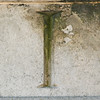
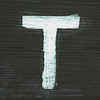
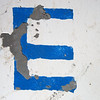
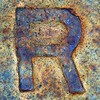
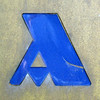



 Go here to read more. These are absolute classics from the late 1950s and very early 1960s. From 'I was face-to-face with the creature from Planet X' to 'I am Robot X', the works of Jack Kirby (who went on to create Captain America, the X-Men, Fantastic Four and the Hulk) are fabulous. Each one is a gem.
Go here to read more. These are absolute classics from the late 1950s and very early 1960s. From 'I was face-to-face with the creature from Planet X' to 'I am Robot X', the works of Jack Kirby (who went on to create Captain America, the X-Men, Fantastic Four and the Hulk) are fabulous. Each one is a gem.

 Graffiti Archaeology is amazing. We are all interested in space, place and time these days. My own interests are also focused on graffiti at the moment.
Graffiti Archaeology is amazing. We are all interested in space, place and time these days. My own interests are also focused on graffiti at the moment. In the 19th century, Stedman Whitwell was "deeply troubled by the will-nilly way that cities and towns were named in America". It seems that the plague of Washingtons and Springfields was too much to bear. He proposed a "Rational Geographical Nomenclature".
In the 19th century, Stedman Whitwell was "deeply troubled by the will-nilly way that cities and towns were named in America". It seems that the plague of Washingtons and Springfields was too much to bear. He proposed a "Rational Geographical Nomenclature".  Cabinet magazine contains some fabulous, quirky stuff. A minor history of giant spheres by Joshua Foer has just been published in the Fall 2007 edition. The 'minor history' begins in 1664 with the world's first modern planetarium and ends with an ode to the Star Wars Death Star constructed in the United Arab Emirates.
Cabinet magazine contains some fabulous, quirky stuff. A minor history of giant spheres by Joshua Foer has just been published in the Fall 2007 edition. The 'minor history' begins in 1664 with the world's first modern planetarium and ends with an ode to the Star Wars Death Star constructed in the United Arab Emirates.
 For the first time in human history more of us now live in urban sites than rural, amid growing diversity and struggle for access to diminishing resources and political power. Henri Lefebvre noted that,
For the first time in human history more of us now live in urban sites than rural, amid growing diversity and struggle for access to diminishing resources and political power. Henri Lefebvre noted that, A collaboration by Harvard Law School, Yale Law School, New York Law School, Trinity University and Nanyang Technical University is presenting the 2007 State of Play Conference.
A collaboration by Harvard Law School, Yale Law School, New York Law School, Trinity University and Nanyang Technical University is presenting the 2007 State of Play Conference.
 cholar and artist Paul Carter. An interesting day. Lots to think about. Look out for the edited collection that will follow.
cholar and artist Paul Carter. An interesting day. Lots to think about. Look out for the edited collection that will follow.

 Not everything is digital, nor does it need to be.
Not everything is digital, nor does it need to be.


 This is hilarious (but not).
This is hilarious (but not).
 Our digital literacies SIG hosted a symposium of PGR students at the UKLA (United Kingdom Literacy Association) International Conference held at Swansea University last week.
Our digital literacies SIG hosted a symposium of PGR students at the UKLA (United Kingdom Literacy Association) International Conference held at Swansea University last week. We are increasingly interested in the design and uses of urban space. The Lubetkin Prize is awarded to the most outstanding architectural work constructed outside the UK by an RIBA (Royal Institute of British Architects) member.
We are increasingly interested in the design and uses of urban space. The Lubetkin Prize is awarded to the most outstanding architectural work constructed outside the UK by an RIBA (Royal Institute of British Architects) member. Flickr has a photo pool called 'what's in your bag?' This group has almost 4000 photos in it (and growing). If you would like to do something a little different, Timur Akhmetov and Yulia Yakushova are encouraging you to scan your face alongside whatever happens to be in your pockets.
Flickr has a photo pool called 'what's in your bag?' This group has almost 4000 photos in it (and growing). If you would like to do something a little different, Timur Akhmetov and Yulia Yakushova are encouraging you to scan your face alongside whatever happens to be in your pockets. The University of Southern California's Annenberg Public Diplomacy Island is hosting an international virtual event in Second Life on the 22nd June from 9.00 SLT. Second Life CEO Philip Roseday and MacArthur Foundation's President Jonathan Fanton will discuss philanthropy in virtual worlds. Grab your avatar and turn up!
The University of Southern California's Annenberg Public Diplomacy Island is hosting an international virtual event in Second Life on the 22nd June from 9.00 SLT. Second Life CEO Philip Roseday and MacArthur Foundation's President Jonathan Fanton will discuss philanthropy in virtual worlds. Grab your avatar and turn up!
 Mooch: to obtain something without paying for it.
Mooch: to obtain something without paying for it. If you've never been to the Futurelab website, you should go. As their website says, they really are passionate about changing the ways in which people learn and exploring the ways in which technologies and learning intersect and they do some funky, important stuff.
If you've never been to the Futurelab website, you should go. As their website says, they really are passionate about changing the ways in which people learn and exploring the ways in which technologies and learning intersect and they do some funky, important stuff. I have been reading designobserver. Apparently we are currently publishing a book every 30 seconds - which means that by 2052 there will be more people writing and publishing books than people reading them. This poses interesting challenges for publishers and authors.
I have been reading designobserver. Apparently we are currently publishing a book every 30 seconds - which means that by 2052 there will be more people writing and publishing books than people reading them. This poses interesting challenges for publishers and authors.

 The GeoCommons site was officially launched on the 28th May at the Web 2.0 Conference in San Jose.
The GeoCommons site was officially launched on the 28th May at the Web 2.0 Conference in San Jose. Homework: 'schoolwork that a student is required to do at home'. Makes it sounds so easy. Doesn't capture the emotional stress, missed sleep, arguments, tears, uncertainty, frustration (and that's just what parents experience). Homework is, and should be, the topic of hot debate these days.
Homework: 'schoolwork that a student is required to do at home'. Makes it sounds so easy. Doesn't capture the emotional stress, missed sleep, arguments, tears, uncertainty, frustration (and that's just what parents experience). Homework is, and should be, the topic of hot debate these days. His comments were part of a PBS focus on the "video game revolution".
His comments were part of a PBS focus on the "video game revolution". Henri Cartier-Bresson was one of the most influential photographers of the 20th century.
Henri Cartier-Bresson was one of the most influential photographers of the 20th century. A report in the BBC News outlines the growing volume of state-led censorship of the internet. Since 2002 the number of states actively filtering access to the internet has grown from a couple to at least 25.
A report in the BBC News outlines the growing volume of state-led censorship of the internet. Since 2002 the number of states actively filtering access to the internet has grown from a couple to at least 25.